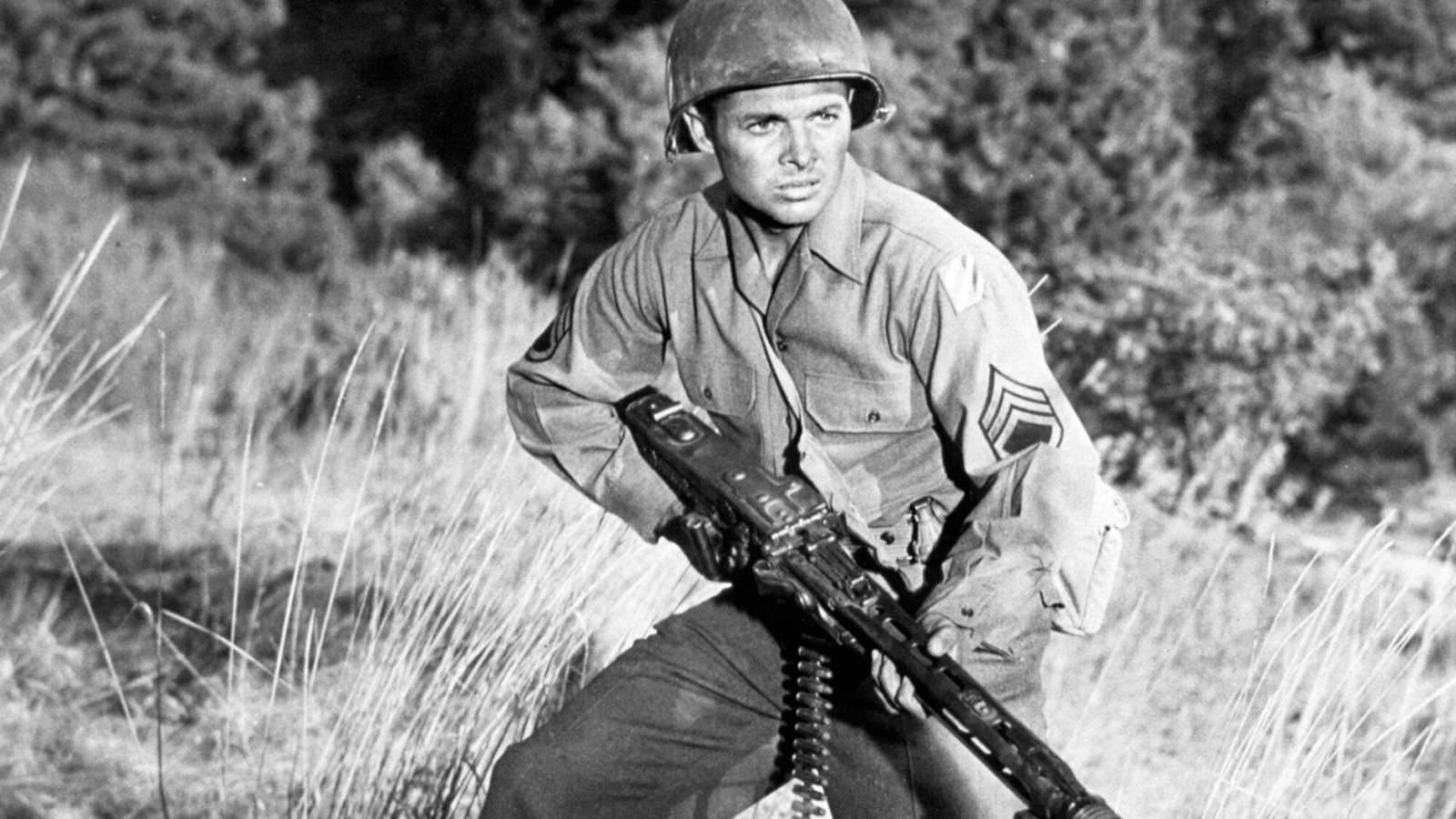When we hear the word courage, we usually envision some guy running into harm’s way, standing tall in the face of insurmountable odds. But other times, the greatest battles don’t occur on a battlefield. They’re the silent, inner ones that appear long after the war is over. Perhaps few individuals personify this sort of resilience as much as Audie Murphy — a name that still represents resilience, integrity, and the continued struggle for mental wellness.

Audie Murphy’s origin story begins in Texas’s dry farmland, where things were not exactly easy. He was one of twelve children, living in a universe governed by poverty and loss. His father came and went until the day he didn’t return at all. Murphy was alone by the time he was sixteen, working in cotton fields to keep his siblings fed. Those early challenges created a sort of unassuming toughness in him — the kind that would eventually serve him through some of the fiercest fighting of World War II.
When war came, Murphy was set on serving. He was underage, so he altered his birth certificate. Too small for the Marines — five foot five, 110 pounds — he pushed and pushed until the Army accepted him. What happened next was nothing short of incredible.
Murphy’s service in combat became legend. One of the greatest acts of heroism in his life was when, during a skirmish outside Holtzwihr, France, in January of 1945, his company was heavily attacked by German tanks and troops. While the rest of his division retreated, Murphy remained behind, requesting artillery fire and eventually riding up onto a burning tank destroyer to use its machine gun. By himself, and with three sides exposed, he repelled the attack, killing dozens and compelling the enemy to fall back.
On that day, he rescued his unit. During the war, Murphy spent some 400 days on the front lines, was injured three times, and took part in nine major campaigns. He emerged as the war’s most decorated U.S. soldier, earning 33 awards, including the Medal of Honor.
But when the war was over, the real battle started. Like so many other veterans, Murphy returned home with unseen wounds. He had what we now know as PTSD — then it was referred to as “battle fatigue.” He had nightmares. He couldn’t sleep. He struggled with an addiction to sleeping pills. And yet, what set him apart wasn’t his wartime heroism. It was that he was willing to talk about what he was experiencing.
In an era when mental illness was rarely discussed, Murphy spoke out and used his fame to get attention on the emotional cost of war. He knew other vets were hurting as well — particularly those returning from Korea and Vietnam — and he wanted to see change. He challenged the government to get serious about mental health and to treat veterans with the care they needed.
In doing so, Murphy helped break the silence. He showed that being strong doesn’t mean pretending you’re fine. Sometimes it means admitting you’re not. His story helped create space for others to share their struggles without shame.
Audie Murphy’s legacy is more than war heroism. It’s about the type of resilience that stems from confronting your hurt and deciding to keep moving forward. His life teaches us that the most difficult wars are usually the ones nobody notices — and that true bravery lies in the quiet resolve to mend.
He is a compelling reminder: we all bear loads. And now and then, the most courageous thing we can do is just keep moving, step by step.
